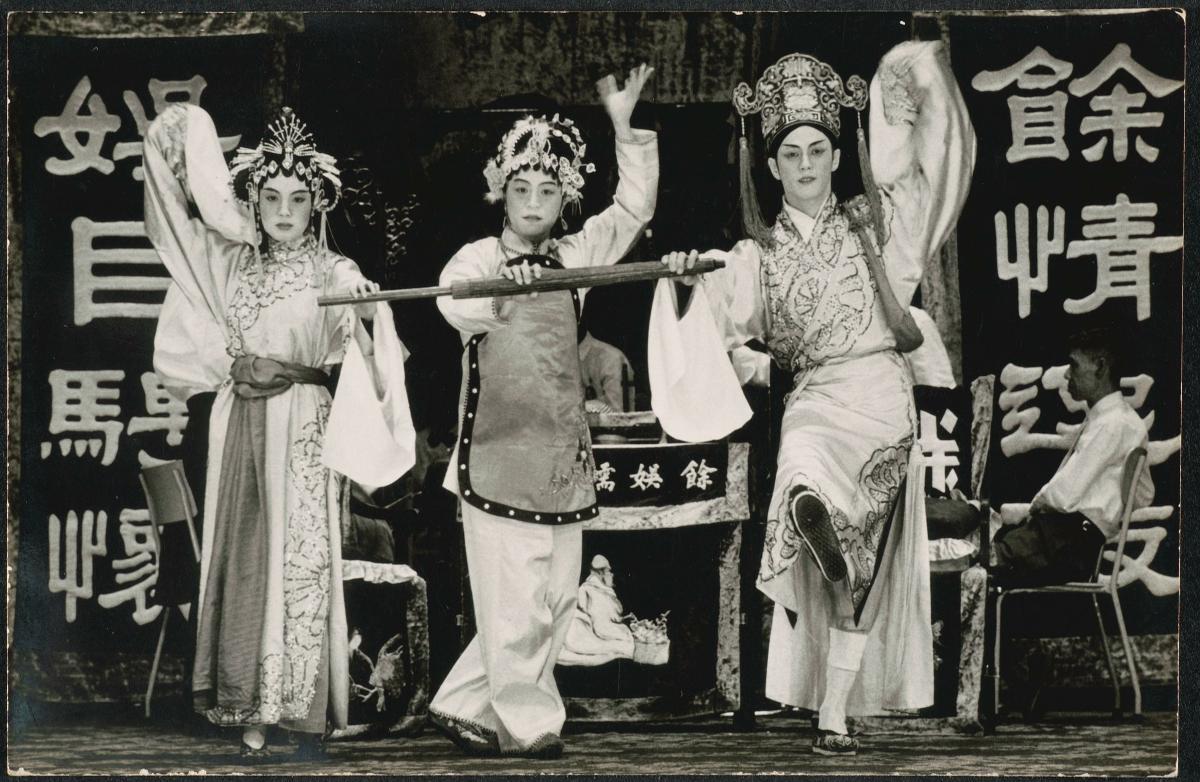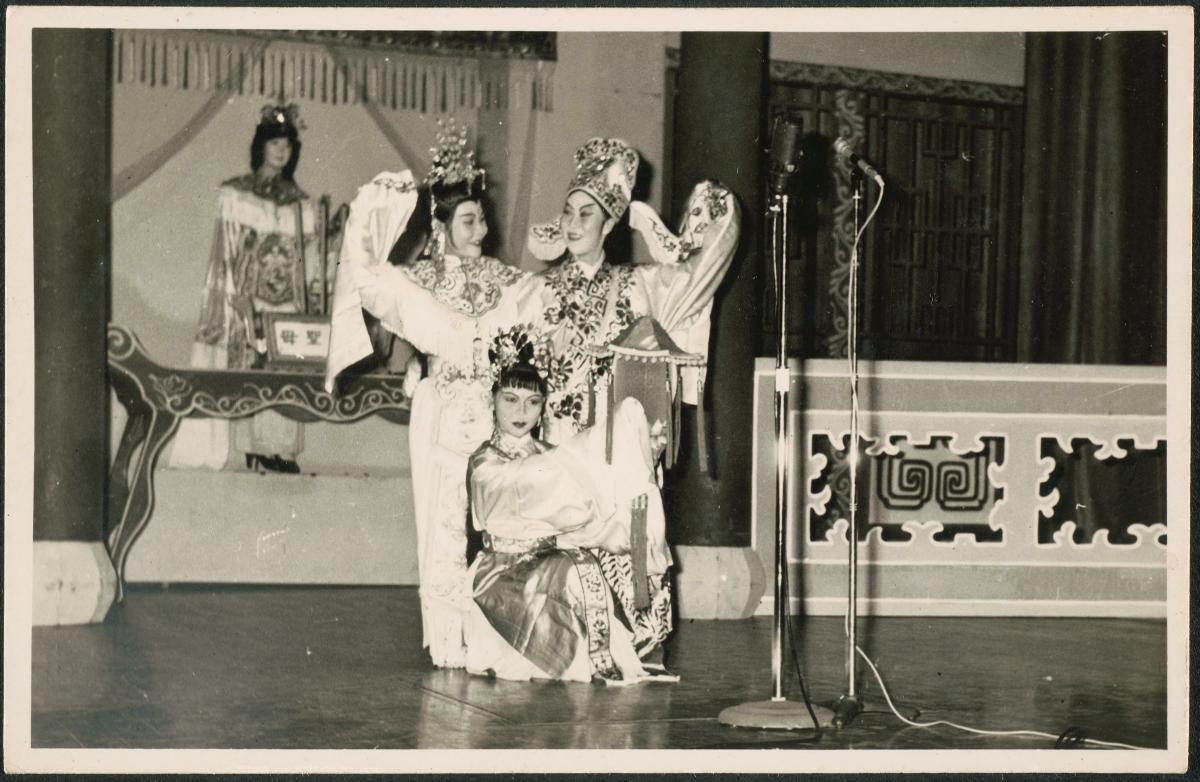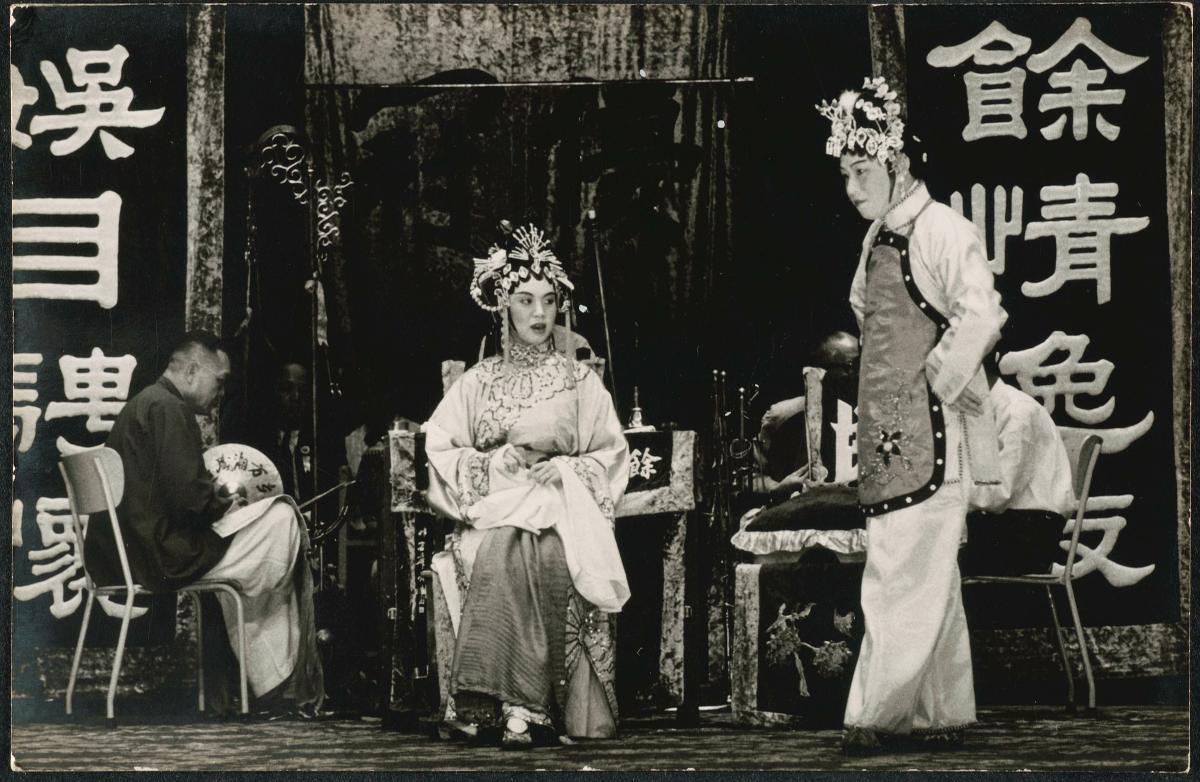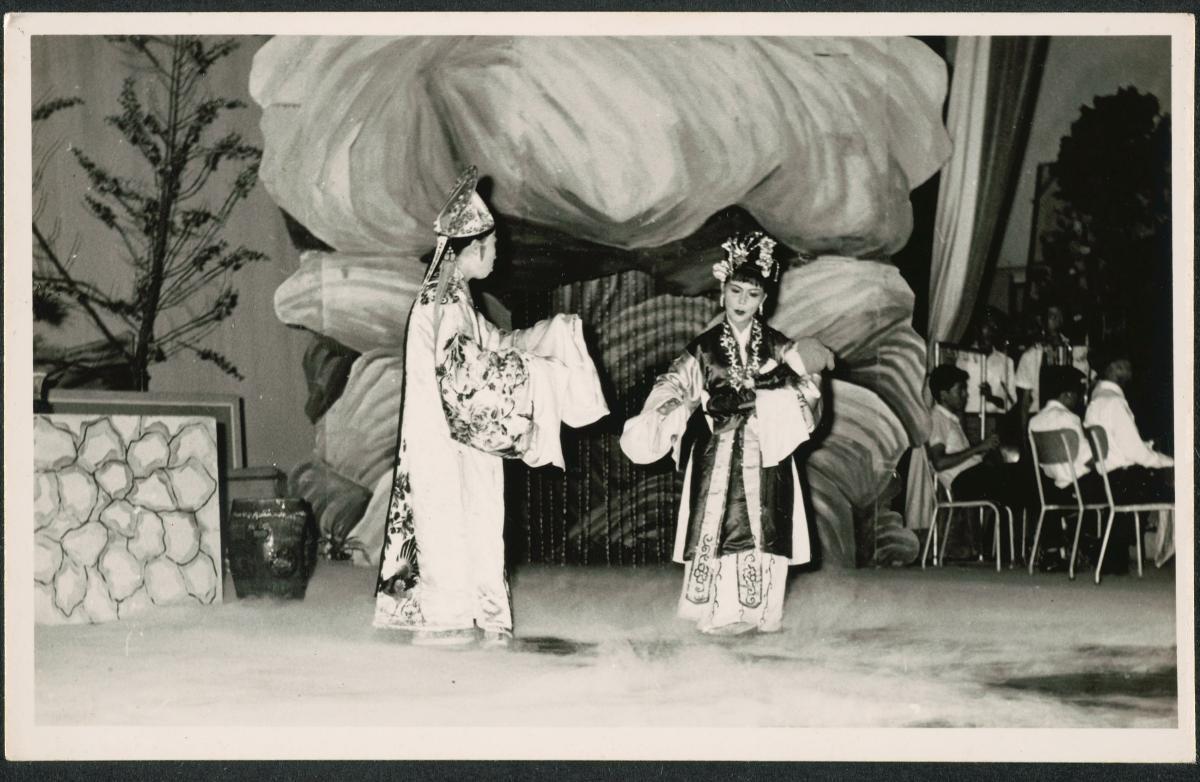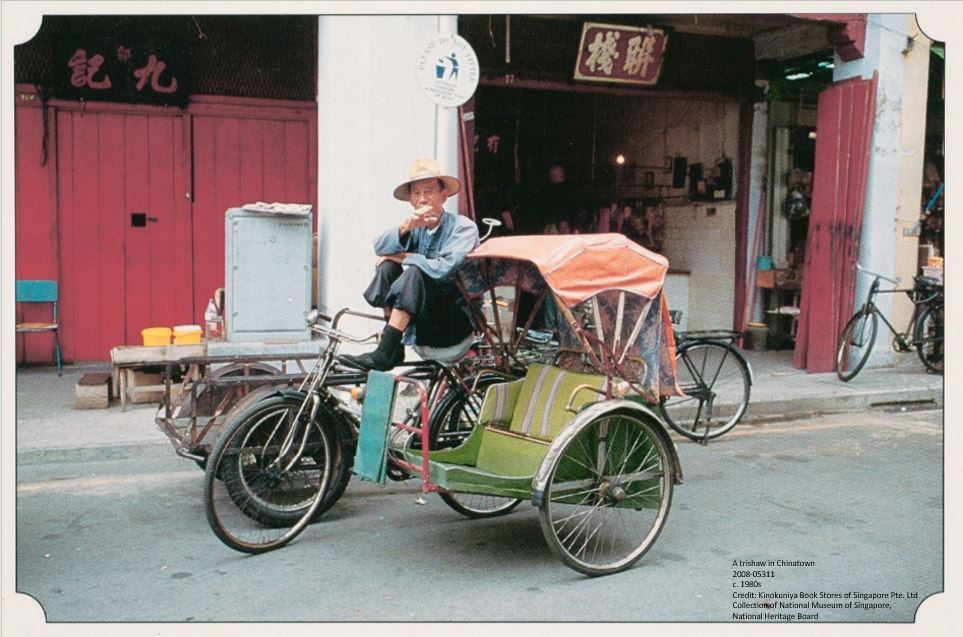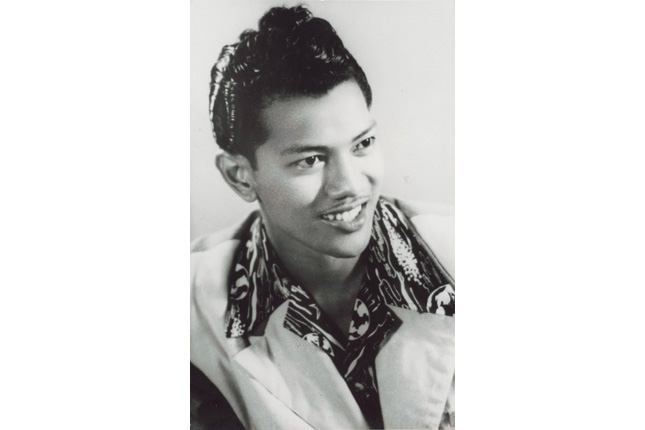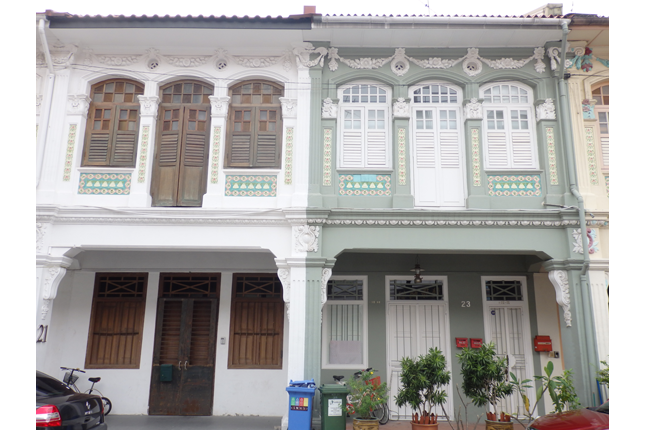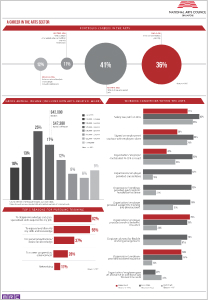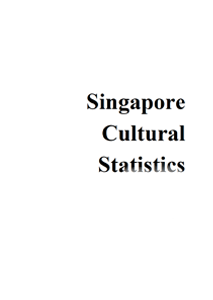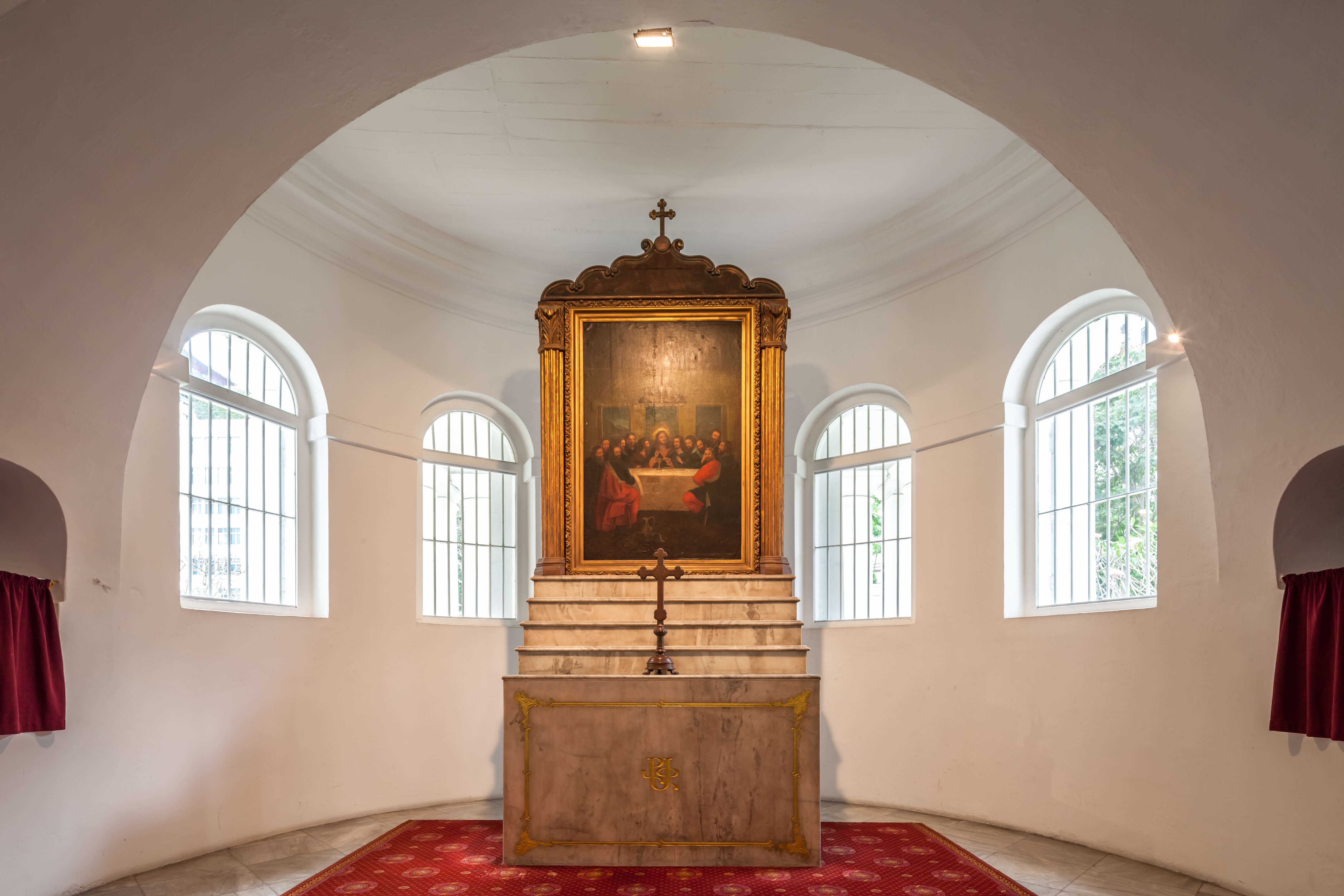On the Chinese opera stage where scenery and props are few and far between, Chinese opera actors rely on stylised gestures to express a certain situation or event, as demonstrated by the actors in this photograph. Also known by the Malay term ‘wayang’, which means ‘performance’, Chinese opera in Singapore can be traced back to the 19th century with the arrival of Chinese immigrants. Up until the 1930s, wayang was a popular performing art, both as a platform for religious worship and as a cheap form of entertainment. Chinese opera costumes, which have evolved over the centuries since the dynasties of Imperial China, are typically decorated with intricate designs and accessories that portray the age, traits and social status of the character. The headdress is an important element of the Chinese opera costume. Adorned with sequins, pearls and other ornaments, it helps to distinguish specific roles; the more important the character, the more elaborate the headdress.





